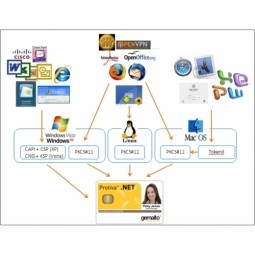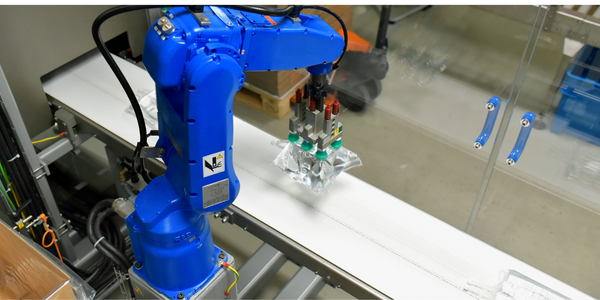下载PDF
Sophim: Enhancing Production Agility and Efficiency with Universal Automation
技术
- 应用基础设施与中间件 - 数据交换与集成
- 功能应用 - 计算机化维护管理系统 (CMMS)
适用行业
- 生命科学
适用功能
- 维护
- 产品研发
用例
- 租赁金融自动化
- 预测性维护
服务
- 系统集成
挑战
Sophim 是一家化妆品行业天然成分制造商,面临着自动化系统现代化的挑战。该公司寻求以托管、低风险和敏捷的方式将其传统自动化系统升级为工业 4.0 解决方案。新的解决方案需要提供 IT 技术的干净集成,特别关注预测性维护。此外,Sophim 希望利用外部工程专业知识,而不引入项目或解决方案的复杂性。实施该解决方案的任务交给了联盟系统集成商合作伙伴 Master Systèmes。
关于客户
Sophim 是一家化妆品行业天然成分制造商。该公司需要一个现代化、敏捷、高效的自动化系统来改进其生产流程。 Sophim 寻求将其遗留系统升级为工业 4.0 解决方案,重点关注预测性维护和 IT 技术的清洁集成。该公司还旨在利用外部工程专业知识,而不增加项目或解决方案的复杂性。 Sophim 的目标是提高运营效率、减少设计时间和生产时间,并增强其市场竞争力。
解决方案
Master Systèmes 为 Sophim 部署了通用自动化解决方案,称为 EcoStruxure for Life Sciences。该解决方案包括基于 IEC 61499 标准的下一代工程平台 EcoStruxure Automation Expert。这种以软件为中心的工业自动化系统连接了 IT 和 OT,遵循通用自动化的开放原则。该解决方案配备了 Modicon M580 dPAC,它可以统一 Sophim 不同机器的数据并将其关联起来。这使得数据对于生产经理而言变得易于理解、可用且更有价值。得益于边缘计算功能,该解决方案还为自动化控制系统的选择提供了更大的灵活性,并在未来更轻松地集成分析或其他软件解决方案。
运营影响
数量效益
相关案例.

Case Study
Corporate Identity Solution Adds Convenience to Beckman Coulter
Beckman Coulter wanted to implement a single factor solution for physical and remote logical access to corporate network. Bechman Coulter's users were carrying smart card badges for doors, but also needed a one-time password token to access to our corporate network when they were not in the office. They wanted to simplify the process.

Case Study
Embracing Business Success in Real Time
· Increase control over growing Big Data to improve business decisions · Manage data for 28,000 biotechnology stockkeeping units in the fields of microbiology, molecular biology, animal cell cultures, plant tissue cultures, and lab ware for laboratory chemicals · Accelerate report generation and analysis with real-time data

Case Study
Flow Robotics: Scaling Up Production and Accelerating Product Development with IoT
Flow Robotics, a Danish manufacturer, developed flowbot™ ONE pipetting robots to alleviate the strain on bioanalysts in life-science laboratories and hospitals across Europe. These robots were designed to automate part of the testing process, speeding up the time it takes to produce results and reducing pressure on staff. However, the company faced challenges in scaling up production and accelerating product development. High workloads and physically challenging conditions have long been an issue for laboratory professionals. Flow Robotics estimates that around half of medical lab technicians carry out the same arm movements for at least a quarter of their working day. The American Society for Clinical Pathology reported that 85% of laboratory professionals feel burnt out; 36% struggle with inadequate staffing; and 32% face a heavy workload and pressure to complete all testing on time.

Case Study
Revolutionizing Aerospace Industry with 3D Printing: A 63% Lighter Titanium Part
GE Aviation, a renowned name in the aerospace industry, recognized the potential of 3D printing technology in transforming the sector. The primary challenge was to reduce the weight of the aerospace parts, which would directly impact the fuel costs. A lighter airplane would mean lower fuel consumption, leading to cost savings and a smaller carbon footprint. However, achieving this weight reduction without compromising the strength and functionality of the parts was a significant challenge. Traditional manufacturing methods were not able to provide the desired weight reduction while maintaining the required stiffness and strength of the parts. The challenge was to find a solution that could create strong, light, and functional aerospace parts.
Case Study
Material Intelligence at Ethicon: Sustaining Medical Device Manufacturability and Improving Patient Care
Ethicon, a world-class medical devices company, faced several challenges in its operations. The rapid selection of manufacturing materials compliant in global markets was critical to assure patients, practitioners, and purchasing organizations of the biocompatibility of their medical devices. Ensuring supply chain continuity and minimizing risks of obsolescence for medical devices due to regulatory changes were also crucial in meeting Ethicon’s ongoing commitment to maintaining patient care. Furthermore, the engineers at Ethicon were developing the next generation of medical devices and needed to access historical material data to accelerate new product development. The process of centralizing and digitalizing its materials information was a significant challenge that Ethicon needed to overcome.
Case Study
IWT's Transformation: Customizing with Efficiency in IoT
IWT, a company specializing in the design, manufacture, and installation of washing systems for the life sciences and pharmaceutical industries, faced a significant challenge in managing its wide product portfolio. The company manufactures 45 different models, 60% of which are customized to some degree. This high level of customization, combined with limited production quantities, necessitated a controlled process for managing the release of engineering changes. The goal was to achieve efficiency, reduce process time, and better coordinate production throughout the organization. The need for strict compliance in heavily regulated industries further complicated the situation. IWT's existing PLM journey with Dassault Systèmes’ SOLIDWORKS for 3D CAD and Enovia for managing CAD data and Bills of Materials (BOMs) was proving inadequate. The system had limited part classification, no workflow, and no tool to ensure data consistency. The management of non-CAD documents was also a challenge, with information often difficult to find and access.





